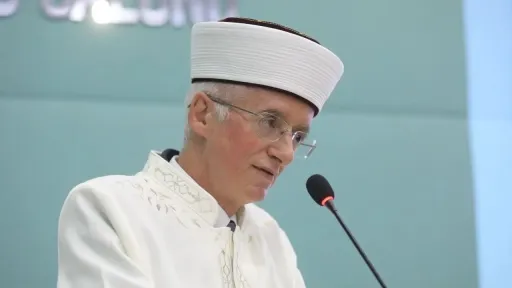Over 12,000 irregular migrants caught on Turkish-EU border in 2024

“We have captured 12,791 illegal migrants on our borders, as well as 363 terrorist group members trying to flee, as of Aug. 31,” Sezer told reporters on Wednesday.
Edirne is Türkiye’s land gateway to Greece and hence, to Europe, and is a major hub for irregular migrants, as well as criminals, terror suspects and others en route to the continent.
Security forces regularly comb the city of Edirne for irregular migrants, with aerial support in uninhabited areas near the border.
According to the governor, authorities also cracked down on human smugglers, capturing 451 organizers, 209 of whom were arrested, which marks a 70% increase compared to last year. Some 655 vehicles, including 130 boats, used for smuggling were sized in the past eight months.
Sezer, the former head of the Disaster and Emergency Management Authority (AFAD), a major government agency overseeing the needs of refugees, said security forces have intensified both citywide and border patrols, conducting audits on 107 checkpoints, to prevent irregular migration.
“Irregular migration has declined by 85% compared to last year,” the governor said, pointing out top measures on Edirne’s border to Bulgaria and Greece such as electronic optic towers and cameras.
He said a 300-kilometer (186-mile) stretch of a 345-kilometer road along the border has been repaired and connecting routes have been revised.
This week alone, authorities detained 25 irregular migrants in the province, most of whom were Afghan, Syrian or Pakistani nationals.
Türkiye has been the main destination for refugees trying to cross into Europe, especially since the beginning of the Syrian civil war in 2011. Every year, hundreds of thousands of migrants flee civil conflict or economic hardship in their home countries with the hope of reaching Europe.
Some migrants make the dangerous journey over land or sea with the assistance of smugglers, who often abandon them, especially during sea journeys, after receiving thousands of dollars from each migrant. Others are stopped by Turkish security forces before crossing the border into Europe.
In some cases, neighboring Greece is accused of pushing back migrants in a controversial practice. In the Aegean Sea, Greek coast guard boats often drive out approaching migrant boats to the Greek islands.
In Edirne, several cases of similar “pushbacks” were documented in the past years. In some cases, migrants were found naked and bruised after what they claimed were from beatings at the hands of Greek border officials who stripped them and forced migrants to march back to the Turkish side.
On the Maritsa (Meriç) River dividing two countries, migrants were in the past forced to row back to the Turkish border after their boats were turned back by Greek forces.
The latest statistics, between 2010 and 2023, show Türkiye rescued 184,175 irregular migrants from its seas after they put their lives in danger with the hope of reaching Europe.
Some 923 migrants, on the other hand, ended up dead on perilous journeys in the same period, while 503 people remain unaccounted for after their boats sank.
Last year alone, 20 people died while traveling to nearby Greek islands from the Turkish coast. Eleven went missing as they strived to reach the islands in the Aegean Sea, while the Turkish coast guard saved 23,977 irregular migrants from certain death.
Economic crises and conflicts drove more people abroad as irregular immigrants, and European countries have remained attractive to migrants from African and Asian countries in the past decade.
The sea route is naturally the main choice of migrants, but it is also the most dangerous as the Mediterranean waters are not always safe for boats, let alone dinghies, a cheap way of transportation for most migrants.
Tricked by migrant smugglers to take the short route from Türkiye to Greece, migrants barely make it to the Greek waters before their boats are either caught or in danger of sinking amid bad weather.
As part of recently revived talks to mend long-tense bilateral ties, Greece and Türkiye are floating a renewal of a 2016 EU deal restricting migration, as well.
Türkiye, which already hosts 4 million refugees, more than any other country in the world, is taking new measures at its borders to prevent a fresh influx of migrants, balancing a humanitarian policy and the need to stop thousands from risking their lives.
DailySabah







